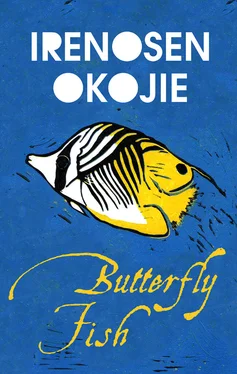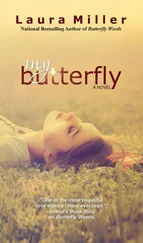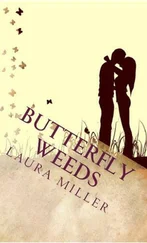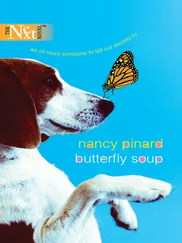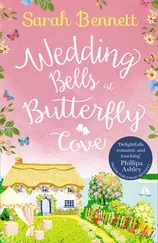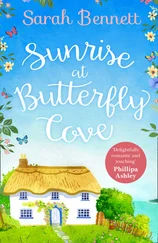Irenosen Okojie - Butterfly Fish
Здесь есть возможность читать онлайн «Irenosen Okojie - Butterfly Fish» весь текст электронной книги совершенно бесплатно (целиком полную версию без сокращений). В некоторых случаях можно слушать аудио, скачать через торрент в формате fb2 и присутствует краткое содержание. Год выпуска: 2015, Издательство: Jacaranda Books Art Music, Жанр: Современная проза, на английском языке. Описание произведения, (предисловие) а так же отзывы посетителей доступны на портале библиотеки ЛибКат.
- Название:Butterfly Fish
- Автор:
- Издательство:Jacaranda Books Art Music
- Жанр:
- Год:2015
- ISBN:нет данных
- Рейтинг книги:4 / 5. Голосов: 1
-
Избранное:Добавить в избранное
- Отзывы:
-
Ваша оценка:
- 80
- 1
- 2
- 3
- 4
- 5
Butterfly Fish: краткое содержание, описание и аннотация
Предлагаем к чтению аннотацию, описание, краткое содержание или предисловие (зависит от того, что написал сам автор книги «Butterfly Fish»). Если вы не нашли необходимую информацию о книге — напишите в комментариях, мы постараемся отыскать её.
Butterfly Fish — читать онлайн бесплатно полную книгу (весь текст) целиком
Ниже представлен текст книги, разбитый по страницам. Система сохранения места последней прочитанной страницы, позволяет с удобством читать онлайн бесплатно книгу «Butterfly Fish», без необходимости каждый раз заново искать на чём Вы остановились. Поставьте закладку, и сможете в любой момент перейти на страницу, на которой закончили чтение.
Интервал:
Закладка:
Irenosen Okojie
Butterfly Fish
To my favourite usual suspects; mum, dad, Amen, Ota and Iredia, thank you so much for everything.
Big love, always.
Part 1. Modern London, London 1970s & 19 thCentury Benin. The Yeah Yeah Yeah Blueprint
View
A green palm wine bottle rolled on the wet London Street. Its movements were audible gasps made of glass. It didn’t matter how the bottle had arrived at its location under the curious yellow gaze of the lamppost or whether the messenger had been a postman delivering for both God and the dancing devil. The image unfurling inside the bottle shimmering like moonlight trapped in glass mattered. Lick the edges of the picture presented and you could taste the sour, sweet traces of palm wine and trap your tongue in a different time; 19 thcentury Benin, Nigeria.
A court was on display. An emerald-eyed man and a young woman attired in traditional Nigerian cloth were before a more ostentatiously dressed committee who bore glum expressions. The woman’s head was bowed and she clutched a pink beaded bracelet, rubbing it repeatedly between thumb and forefinger. The man spoke in a calm, measured tone, his fate already hardened inside the Adams’ apples in the room. An arm was raised, heads snapped up. Then the image in the bottle spun like a revolving door. Dust swirled, and a bushy path emerged. The man and woman were being led by soldiers who could perform the nifty trick of building distances between bodies in close proximity. The heat was thick and intense. Fallen branches lining the twisting path cracked loudly. Buzzing mosquitoes were winged witnesses. Reluctant to draw blood they formed a black net above the bobbing heads.
Out of the dark London night a teenager being chased by two raucous friends, leaning for breath under the lamppost noticed the green glass glinting in the grey light. Slightly unsteady on his feet the boy swiped the bottle up and threw it against the wall, watching it smash. He yelped as the contents spilled out, an amorphous mass, images flickering like ancient film reel. The boy’s pupils were swimming in beer and he was uncertain of the picture before him as the scene dragged itself up the pavement, with bits of glass embedded in its outline. The bottom half of the bottle lay shattered on the ground. The scene continued to evolve, fragments of moonshine gleamed between puffs of red dust. Small movements fractured then reassembled as it hauled onwards stopping outside the chipped, wooden door of a quietly dark flat where only the sound of the trembling shrubbery flanking the recycle bin passed through the keyhole. It spun slowly on the thick, straw-coloured welcome mat. Inside the flat the young woman tossing in her sleep remained unaware of her breath clouding the surroundings, of turning her head towards two paths lined with coloured, broken glass, of the tiny people from the palm wine bottle pleading against her thumping heartbeat.
In The Beginning
The first time I met Mrs Harris, she’d told me she was certain that Buddy, her garden statue Buddha, had been eating her roses. Although, she’d added, there may have been a slim chance the fat, sepia-coloured cat of a neighbour was the one skulking around fighting her roses, who in turn offered only their blooms in scented, decorative peace offerings. Mrs Harris was my new next-door neighbour. A slight woman who chatted enthusiastically about all kinds of subjects, she lived alone and dressed like a hippy. Snow white hair hung past her shoulders in an unruly mess, shrouding her heavily lined face. A chicken pox mark on her left cheek looked like a teardrop. Her green eyes rippled with laughter and mischief.
That morning, she stood at my doorstep, hair slightly damp, clutching a small dark blue container with the word “tea” peeling off at the corners. She smelled of an odd combination of cigarettes and baked bread. “It’s Buddy,” she said. “He’s gone missing.” The sky swirled a moody grey. Along the street, the sound of doors shutting heralded the morning rush hour.
“Again?” I asked.
Her eyes narrowed into slits. “Can I come in?
I nodded reluctantly, stepping aside to allow entry. We moved down the wood floor hallway, the smell of damp clothes heavy in the air, past my messy sitting room with the previous evening’s Chinese takeaway containers stacked on the floor, a large black and white picture of Jimi Hendrix blowing smoke into the lens commanding one wall. My mother’s bright throw was slung deliberately over the blue sofa smothering past indiscretions. We entered the kitchen.
“Isn’t this the fifth time?” I asked. I wasn’t in the mood for visitors.
I watched her make herself comfortable at the worn wooden table an old traveller man with blackened teeth had sold me. I felt sluggish and depressed but I took the blue container from her and added bags of tea before handing it back. Three knives drying in the sink gleamed invitingly, old watermarks arched on their silver blades. Buddy had gone missing for days on several occasions. Each time, he was returned safely to a different spot in Mrs Harris’s garden.
I wasn’t certain if Buddy really did go off wandering — maybe it was a cruel trick played by bored kids on the street- or if Mrs Harris, a lonely, eccentric elderly woman engineered the whole thing just for some attention. There was genuine anger in her voice as she remarked, “I’m fed up of this happening! If I catch the little worm responsible God help them.”
“Hey, you didn’t see anything did you?”
I was slow to respond, putting the shiny kettle on and setting aside two cups with teabags, strings dangling down the side. “Can’t say I’ve been following Buddy’s movements.” I answered in an effort to make light of the situation.
She laughed then, full bodied and warm. “I suppose I sound a little crazy to you. But you know, from where he was Buddy could see clear across several gardens. He was probably exposed to things he shouldn’t have been seeing.” This was said with such sincerity, my gaze lingered on her face but it was met with what appeared to be genuine candour. The pipes began to interrupt. Thwack. Thwack. Thwack., as though someone was throwing stones against them.
“Oh God! You too! “Mrs Harris announced, groaning. “My pipes have been noisy all morning and now Buddy’s vanished. Not a good start to the day!”
Sudden concern clouded her features. “Are you okay?” Your energy seems a little off.” The kettle blew warm breaths at the ceiling. It hissed and the red light at the bottom flicked off. I filled both cups, handed one over. “Oh you know, okay. Getting on with things, actually you caught me in the middle of something. I was running a bath.” The sweet scent of blackcurrant filled the air. Both teas were a rich plum hue that darkened our tongues as if with our individual anxieties.
“You should have said dear, I don’t want to impose. I’ll finish my tea and be off, just thought you might have seen something, kids climbing the fence maybe.” She took another gulp, closed her eyes. “Oh that’s good, tea’s nice dear.”
“Yes it is.” I answered. “Maybe Buddy’s gone off on a tea tasting tour of all the exotic flavours he can get his hands on.”
“Maybe,” she said wryly.
“Lucky Buddy.” I took a sip, felt a strong undercurrent of something dark that made my limbs become heavy. I longed to be left on my own. The knives and sink had blended into one silvery entity, dripping small figures with expressions of distress and bladed mouths. Each drop reverberated in my head. I imagined Buddy in the garden commanded by something unknown, leading other garden statues astray up the highway, wearing a blushing pink azalea as an eye patch.
Читать дальшеИнтервал:
Закладка:
Похожие книги на «Butterfly Fish»
Представляем Вашему вниманию похожие книги на «Butterfly Fish» списком для выбора. Мы отобрали схожую по названию и смыслу литературу в надежде предоставить читателям больше вариантов отыскать новые, интересные, ещё непрочитанные произведения.
Обсуждение, отзывы о книге «Butterfly Fish» и просто собственные мнения читателей. Оставьте ваши комментарии, напишите, что Вы думаете о произведении, его смысле или главных героях. Укажите что конкретно понравилось, а что нет, и почему Вы так считаете.
